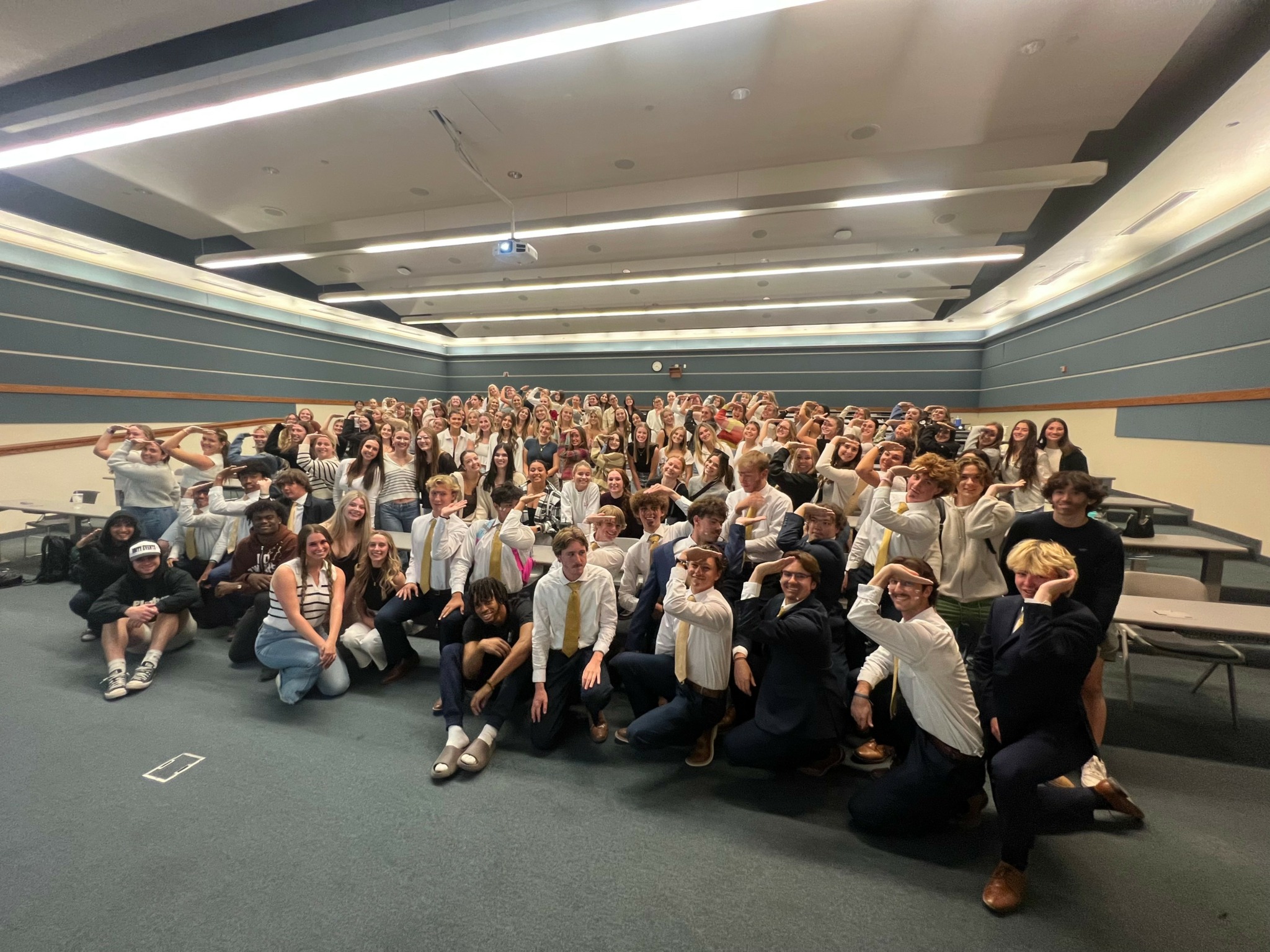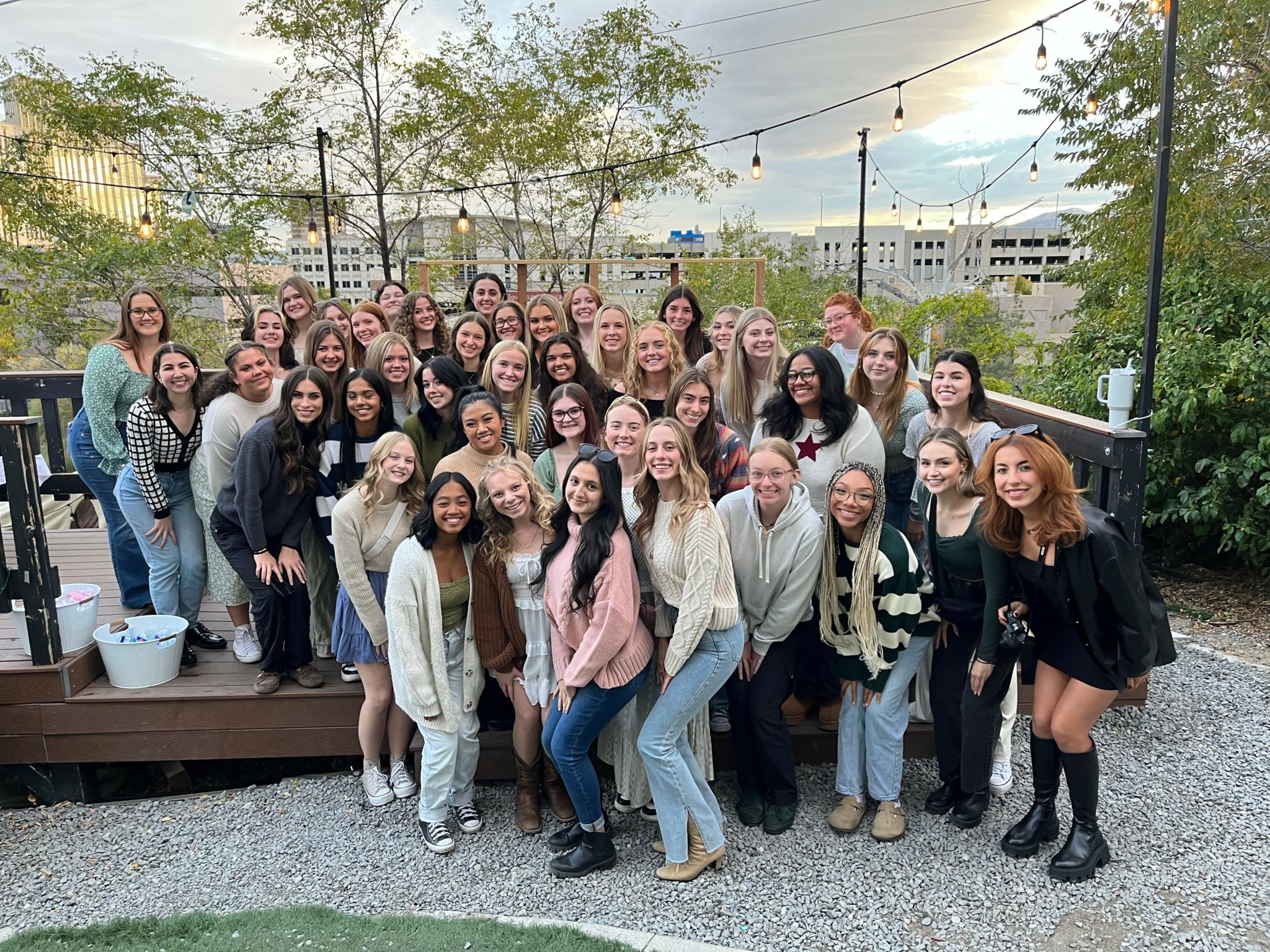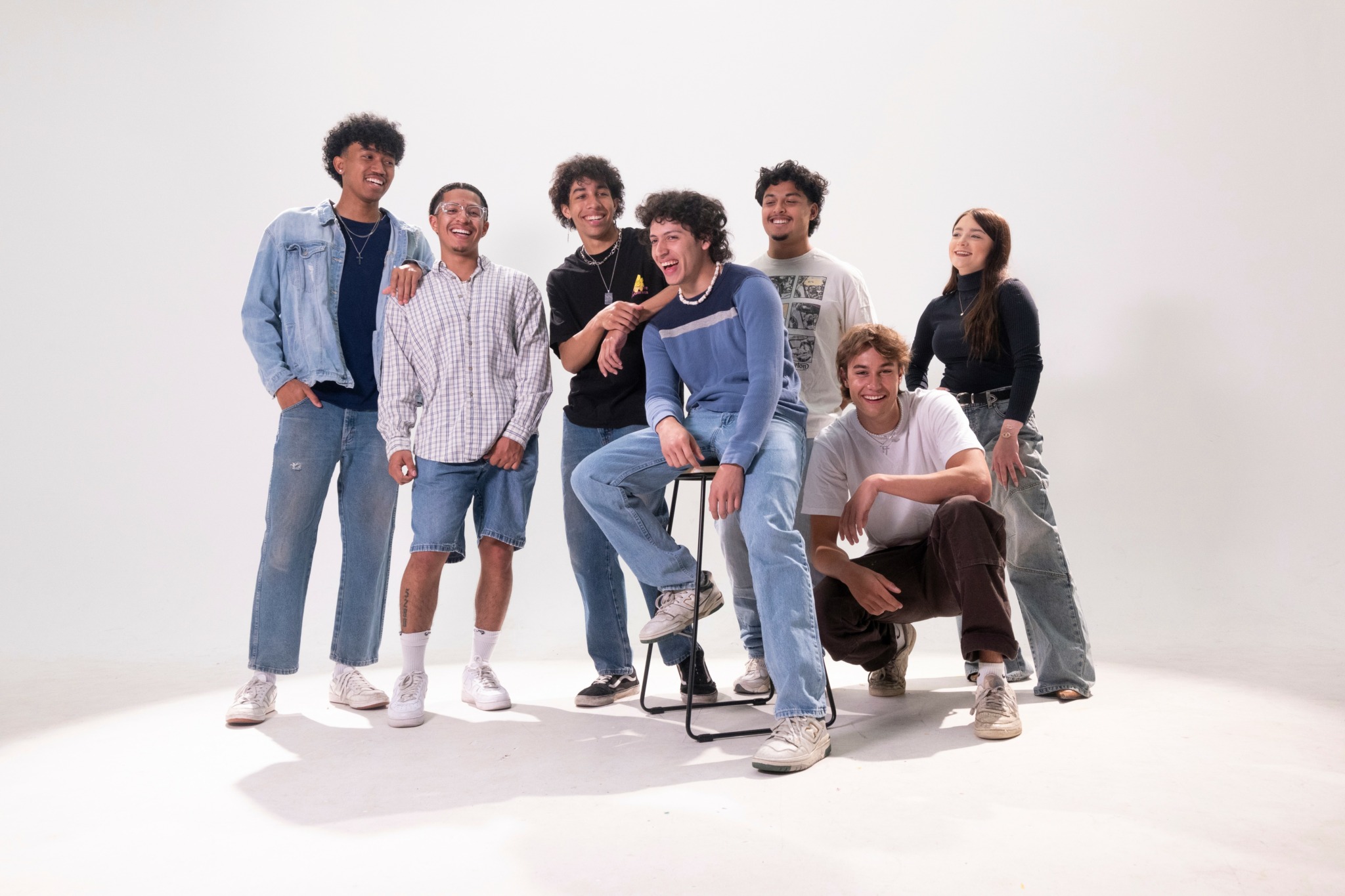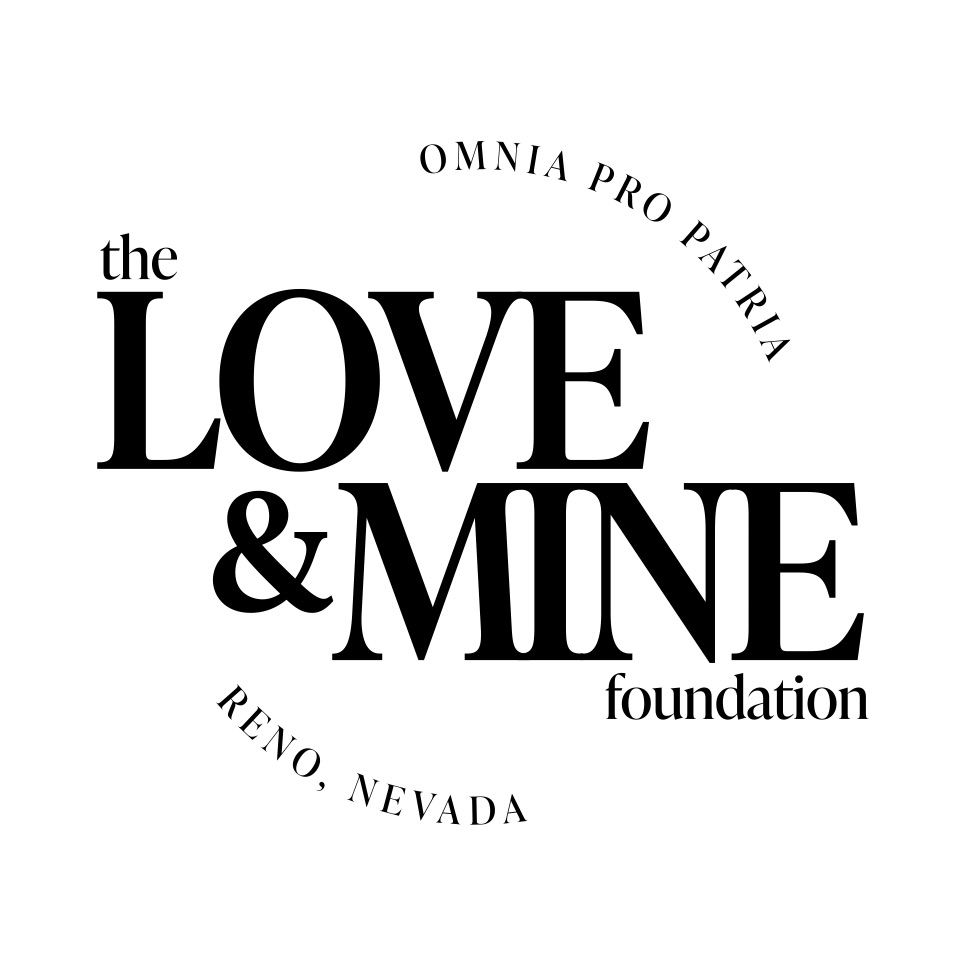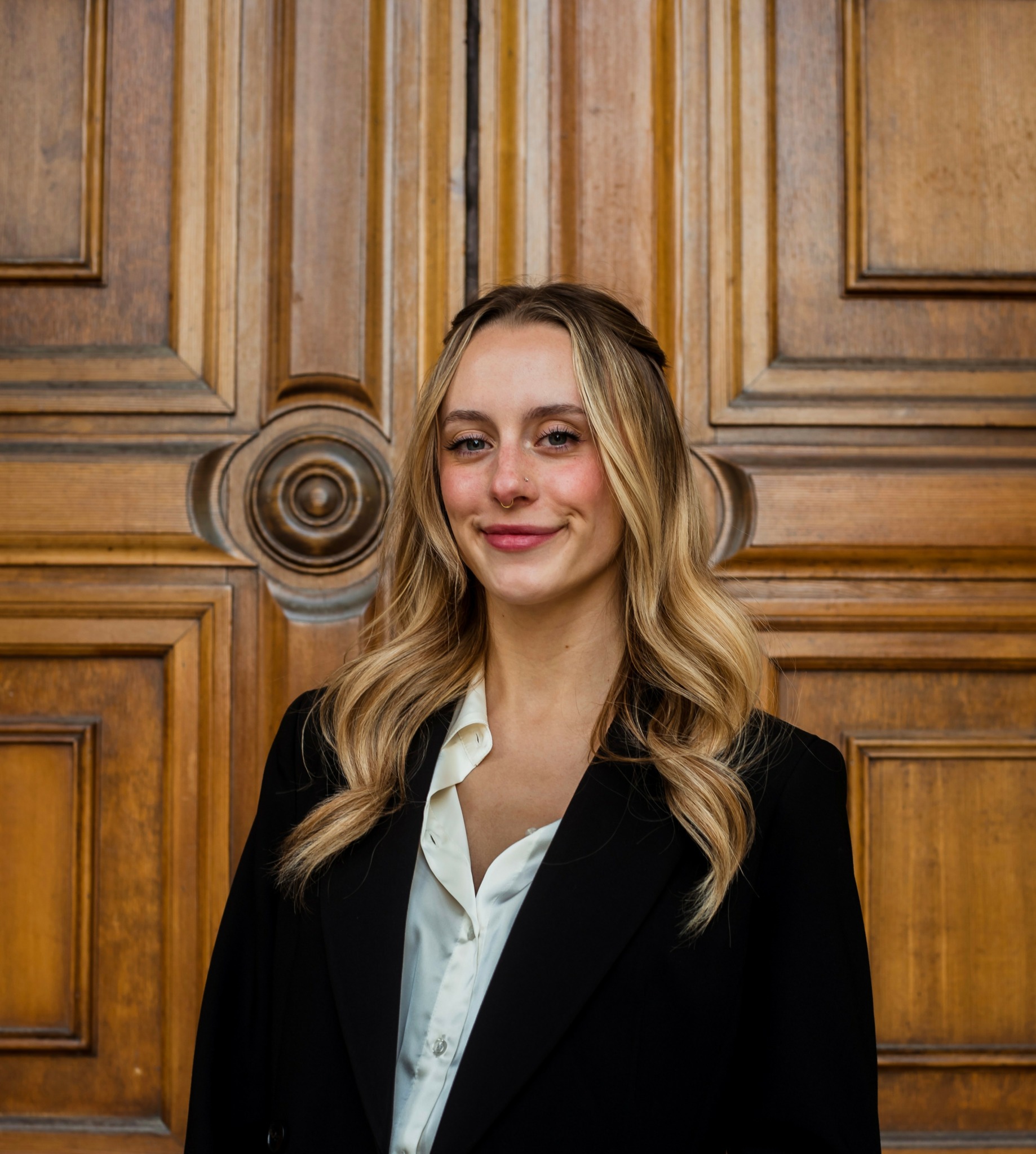We caught up with the brilliant and insightful Sarah Peterson a few weeks ago and have shared our conversation below.
Sarah, looking forward to hearing all of your stories today. Let’s start with the story of your mission. What should we know?
The Love & Mine Foundation’s mission is to stop power-based violence happening at the university level, and to fiercely advocate for those that have been affected by it in our area. Being in the sphere of work that we’re in, most people obviously assume that something happened to me that made me passionate about this area of advocacy. They’re right. I don’t often speak about the “why” behind what I do because in my head it’s not about me, it’s about the people I’m helping right now (I think of it like triaging acuity-my clients are actively traumatized, depressed, anxious, etc.). However, I did experience an assault at 18 that changed how I viewed the world, and my position in it. I went from graduating high school with a 5.0 GPA to being unable to go to classes, turn in assignments, study for tests; I knew I wanted to go to medical school and was in classes to get me there, but the only thing I could think about was that event. I had an advocate from a nonprofit org that got me through those critical months, advocating for me and telling me where to go to get back to “normal”. But as I got older, I saw people that didn’t have that, and I saw them silently withdrawing from their friends, their grades plummeting, and finally, dropping out of school. It felt like an epidemic that nobody was talking about, so I started giving presentations to student groups I was in, helping people by being their advocate, and then built my nonprofit at 21. To me it is personal; I see myself in every single client I’ve had. If I didn’t work my hardest to share the info that helped me so immensely I would never forgive myself. I tell people there’s no “handbook” on what to do after you’re s*xually assaulted but if there was, you’d find it here. I created a place where people can go to ask their questions and receive answers in a comfortable way-as if it’s their friend/sorority sister/peer answering. Because it is. Of course, it took time to build things to industry standard and protect our clients by doing so, but every hour I’ve poured into it has been worth it.
Also a side note: our name the Love & Mine Foundation comes from the sororities I started this journey with and who still are my biggest supporters today. In my sorority, when leaving an event or signing off from an email/correspondence, we would say “TLAM!”, which meant Theta Love And Mine. Took me a couple years to understand it, but I learned it meant I’m sending you off with Theta’s love and my own. I learned that other sororities also say it (ie. Tri Delta says DLAM, SK uses SLAM). I wanted our name to be a signal to them in the way that we’re never going to be the kind of org that tells people in order to stay safe you have to avoid going to frat parties, wearing short skirts or drinking alcohol; in fact, I used to go to the same frat parties and probably wore a shorter skirt. And to show that that’s okay to do and that’s not why it happened to me-it happened to me because someone decided to do that to me. People deserve a normal college experience without experiencing violent crime.
Great, appreciate you sharing that with us. Before we ask you to share more of your insights, can you take a moment to introduce yourself and how you got to where you are today to our readers.
I am a native Nevadan and third generation Reno resident/third generation University of Nevada, Reno graduate. Our primary client demographic are college students (survivors are called “clients” in our area of work when they are accessing resources/working with us). I graduated with a biology degree and biochemistry minor in May of 2024 and recently submitted my application for medical school. I think that’s one thing that surprises people- I kind of fell into this work based on personal experience and exposure to different survivor types rather than having an interest in nonprofit work as a career; I’ve always been a science gal and knew I wanted to be a doctor, as my mom and grandmother were nurses and I grew up listening to their stories at the dinner table about all the controlled chaos that takes place in the hospital. I started in this area of work when I was 19 and decided to start making and giving presentations to all the sororities on campus about resources for s*xual assault as a student (Title IX supportive measures mostly) because of how much they helped me remain in good standing with the University through the aftermath of my assault. I had all the knowledge of what resources I used and an understanding of the legal reporting process from my lawyer that I hired during that time in my life. I thought of it as “if no one else is going to do it, I will”, or rather “I have the information these people need and I need to get it to them”. I saw college as such a unique opportunity to take risks, like starting my nonprofit, because I knew at the end of the day I had such great support from my family that I couldn’t truly fail. They wouldn’t let me go homeless or hungry, so I had to do everything I could to get the info out and help as many people as possible and in undergrad your schedule is so flexible so I had the time that was required to get it done. AND I was in a sorority, Kappa Alpha Theta, so I knew most Greek Life presidents and saw chapter opportunities as having literally a captive audience.
To give background on working in this business, most nonprofits in our area have actual resources like safe houses for DV victims, help with filling out applications for the Victims of Crime program, SART exam coordination, accompaniment to meetings with police, etc., and are funded by OVW grants. Love & Mine is different because we’re simply spreading the word about what’s available, why they might want to access these resources (ie. the VOC program can pay for therapy so you don’t have to explain what happened to your parents in order to talk to a mental health professional through your parents’ insurance), and help people get connected to organizations through back-office referrals, making it so that people don’t have to cold-call a hotline they’re unfamiliar with. We also spend a lot of time making presentations and giving them to student groups on campus that talk about what is “okay” and what’s “not okay”. Think about it: teenagers get s*x education in high school that goes over the basics, but it doesn’t really dive into consent and how you feel when something is wrong, and then they’re set loose on a college campus a couple years later and everyone is hooking up with no oversight or people they can bring their uncomfortable questions to. That’s where we come in. It’s so important to me that the language we use to talk about these things mirrors the language being used by the student population, therefore lessening misunderstandings and confusion with the material. When I present to students I use swear words, I’m blunt, and I talk to people like they’re my younger siblings so they don’t feel judged, but rather, guided. Too often the education given feels disconnected from what’s actually happening and it just loses its meaning that way.
I’m most proud of seeing my clients get to graduation. As I mentioned before, I have seen so many girls through my sorority and others drop out/withdraw from classes because that time of their life is so absolutely difficult to deal with on top of school, and then they never return. This has a massive impact on their future careers, lowering their potential income by exponential amounts over time, and they’re viewed from people that aren’t privy to their situation as being lazy or unmotivated. I know that feeling of “it’s less stressful to take this off my plate than to have to explain what happened”, and it’s very compelling. But one of my biggest goals is to keep people in school and have them know that just like everything else, this too shall pass, and that being in school, connected with their communities and having their support system fostered in undergrad, is worth it. I’ve had a couple people shout me out at their graduations, which is so sweet.
The main thing that I want people to know is that I’m just like you. I may not know exactly what you feel in this moment, but I know that uncertainty. I know the feeling of seeing your rapist on campus, seeing their friends and being terrified that they know what happened, or that they know and still don’t believe you. But I also know how it feels on the other side, being 4 years removed from what happened and feeling more peaceful about the situation. It sounds SO cliche, but it does get better.
Any stories or insights that might help us understand how you’ve built such a strong reputation?
Honestly, word of mouth and people sending their friends or classmates to us. We find that these conversations happen in intimate settings where someone confides in their friend and in that conversation, we’re brought up as a first-stop shop to explain people’s options and describe what the scary processes actually look like (ie. this is what a SART exam entails/this is what the process of a police investigation looks like, etc.). We built our reputation by being approachable, being embedded within the community, and leveraging people’s status on campus to grow our reach. When I found out the University knew of us and our work, saying “who’s that girl that helps the sorority girls?”, that showed me something was working.
Have any books or other resources had a big impact on you?
I do think my nonprofit is in an area of business where other entrepreneurs think they can’t relate to me but I feel there’s a lot of crossover. The philosophy that has gotten me through this work is described by that story of a man walking on the beach after the tide has pulled in and he sees hundreds of starfish left in the sand, starting to dry out. He starts throwing each one back in the ocean when another person approaches and says “you’re wasting your time, you’re never going to save all of these starfish”. The man says “sure, but I can save this one, and this one, and that one”. Any amount of effort used to improve the life of even a single person is worth it. Also, that the time is going to pass anyways. It doesn’t matter if you have big dreams, the time is going to pass anyways, so you might as well be doing something you want to do. Finally, I don’t ever want to look back and think “what if?”. I never could have known that by choosing to start those presentations that it would lead to this, but I am delighted that it did. Imagine if I was too scared to start, or worried about how I would feel presenting about consent to hundreds of frat guys. That fear could have prevented scores of people from making it through a time when they’re suffering out to the other side, and when you think about it that way, you’re much more motivated to overcome those fears. You never know what good you can create unless you just start creating it. One book I do recommend for people to understand why I really felt motivated to do this is “Men Who Hate Women” by Laura Bates. It’s a hard read, but it shows the dangers of letting misogynistic attitudes and sentiments go unchecked, and it peels back the veil of what’s truly at stake here: people’s lives.
Contact Info:
- Website: www.loveandmine.org
- Instagram: @loveandminefdn
- Other: [email protected] is my email!
